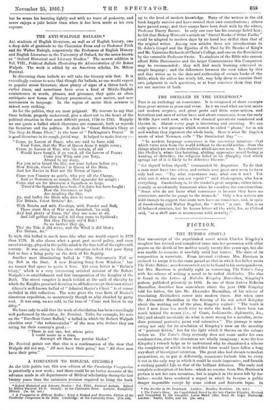THE DWELLER IN THE INNERMOST.* Tins is an anthology on
oonseionce. It is composed of short excerpts from great writers in prose and verse. In it we read what ancient saints and modern sceptics, and great poets and little verse-writers, and historians and men of action have said about conscience, from the early Middle Ages until now, with a few classical quotations translated and thrown in. Almost every page is interesting and arresting. Wo can only quote a few passages which cannot be called " plums," for in wit and wisdom they represent the whole book. Here is what Mr. Bagehot wrote of what Newman calls " The Omniscient Ray " :—
" In modern language conscience is the converting intuition—that which turns men from tho world without to the world within—from the things which are seen to the realities which are not seen. In a character like Shelley's, where this haunting, abiding, oppressive moral feeling is wanting or defective, the religious belief in an Almighty God which springs out of it is likely to be defective likewise."
" Set thyself before thyself," commanded St. Augustine. To do that a man must have two selves, and certain very groat men seem to have only had one. "Try what repentance can: what can it not ? Yet what can it when one can not repent ?" said Shakespeare, who knew everything. Swedenborg is, to the reader's great surprise, either into's" tionally or accidentally humorous when he considers the conscienceleas.
Some who do not know what conscience is because they have no conscience, aaoribe its pangs to the stomach." Only a few writers are bold enough to suggest that some men have no conscience, and, in spits of Swedenborg and Walter Bagehot, the " defect " is rare. Man is an ill-behaved creature, but ho knows better all the while, for, as Clifford said, "as a shell man is murmurous with morality."


































 Previous page
Previous page